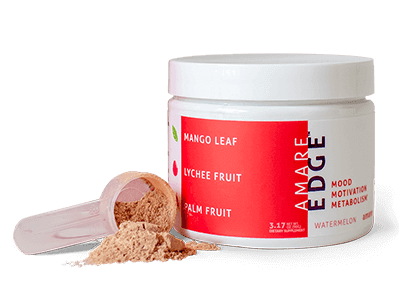|
A good filler food, okra not only curbs hunger but keeps you from tiring, too. It also strengthens your immunity against conditions like diabetes, high cholesterol, Alzheimer’s, liver disease, breast cancer, and asthma. Being rich in vitamins A, C, and K, it helps fortify bones while also improving your eyesight. Experiment with okra water, peels, and powdered seeds to see what suits you best. Ethiopian in origin, Abelmoschus esculentus or Hibiscus esculentus is known by many names around the world – okra, okro, lady’s finger (England), gumbo (U.S.), guino-gombo (Spain), guibeiro (Portugal), Kacang bendi (Malaysia), and bhindi, gombo, and bendakai (India). The fact that it even has that many names suggests its global popularity and widespread cultivation. The tender, young, seed-containing pod of the okra plant is eaten as a vegetable in salads, broths, stews, and stir-fries. Interesting Facts About Okra Being a green veggie, it is easy to wrap your head around the fact that okra is “all healthy.” Here’s what it offers 1 2: Benefits Of Okra Like a number of natural ingredients, scientists are turning a keen eye to this time-tested home remedy. We now have research to back the folklore – which happened to be right. The following are benefits of okra, most of which would probably have never occurred to us. 1. Packs A Truckload Of Nutrients Okra pods are loaded with significant amounts of vital nutrients – protein, fiber, calcium, iron, and zinc.3 It, thus, qualifies as an effective economical tool capable of treating malnutrition around the world. 2. Helps Control Hunger Okra is loaded with soluble fibers.4 Soluble fiber makes you feel full faster and for longer. This can help keep your calorie intake in check, helping you with your weight loss goals. With a longer-lasting feeling of satiety, your need to binge will be curbed immensely. 3. Keeps You From Getting Tired It is unfortunate how common the word “fatigue” has become in today’s world. What used to be mostly age and sickness-related, is now an everyday struggle for young, healthy individuals. Okra seeds can delay fatiguing.5 They contain antioxidant polyphenols and flavonoids that promote glycogen storage in the liver. Glycogen is a body fuel reserve, and more of it means you will take longer to tire. This is why okra is also good for individuals suffering from depression. You will be able to fight the feeling of being inexplicably tired.6 4. Manages Diabetes Mellitus Okra’s peel and seed can lower blood glucose levels, making them useful in managing diabetes mellitus.7 They do so by inhibiting carb-breaking enzymes, increasing sensitivity to insulin, and ensuring there are sufficient insulin-producing cells in the pancreas.8 More insulin and less breakdown of carbs to glucose means lower blood sugar. Turkish people have long been consuming an infusion of roasted okra seeds to manage diabetes mellitus. One study proved that okra seeds prevent the intestinal breakdown of carbohydrates to glucose by inhibiting the enzyme alpha-glucosidase.9 5. Stabilizes Cholesterol Levels Okra promotes cholesterol degradation and inhibits the production of fat in the body.11 It, thus, decreases total cholesterol and triglyceride and enhances excretion of bile acids (made from cholesterol) in the feces. By regulating cholesterol levels in the blood, okra can prevent clogging of arteries – protecting us from heart diseases like atherosclerosis. Okra would make a great functional food ingredient! 6. Fortifies Bones And Prevents Excessive Bleeding The most abundant vitamin in okra is vitamin K.12 This vitamin helps strengthen bones and promotes clotting of blood. Okra, thus, helps prevent osteoporosis, fractures, and excessive bleeding (due to injury or bleeding disorders). 7. Boosts Immunity And Improves Eyesight Okra contains moderate levels of vitamin A.13 Vitamin A encourages the production of white blood cells, key players in your immune system. While infections and diseases do their rounds in the general population, okra will equip your body well enough to resist. Vitamin A also supports eyes health. If you have weak eyesight or if you come from a family with a history of weak eyesight, it makes sense for you to consume okra regularly. H. pylori bacteria infect the stomach lining and cause inflammation called gastritis. Okra juice contains anti-adhesive compounds that bind to the surface of free-floating bacteria in the gut.14 15 This unanticipated binding blocks sites on the bacteria responsible for docking to the stomach lining. In effect, okra juice prevents H. Pylori infections and gastritis. In Asian medicine, the fruit of the okra plant is used as a A concern that arises is whether okra’s non-specific binding to bacteria can deter normal gut bacteria. Further studies are required to assess whether okra’s benefits outweigh its potential side effects. Having said that, we can take refuge in the fact that okra is eaten widely in Asia and Africa for centuries now with no adverse effects on the digestive system. Children between 2 to 5 are more vulnerable to H. Pylori infections, so it makes sense to ensure they eat okra regularly. 9. Prevents Liver Disease Your liver is your body’s prime detox organ. Okra can help ensure it is protected from disease. In one study, chemically-induced liver disease in rats was efficiently counteracted by okra.16 Oral pre-administration of okra extracts reduced the effects of damaging free radicals that cause liver disease. Okra may have done so by stabilizing liver cell membranes, making them more defensive against intruding free radicals. 10. Staves Off Neurodegenerative Disorders Okra may help reduce the risks of Alzheimer’s in individuals who are genetically predisposed to it.17 It may also help prevent other neurodegenerative diseases related to oxidative stress. Imagining how difficult it can be to live with a nerve disorder, this benefit of okra is of great preventive value. 11. Kills Breast Cancer Cells In one study, a lectin isolated from okra was capable of instigating cell suicide in breast cancer cells.18 The growth of breast tumor cells was inhibited by a significant 63%. Breast cancer affects 1 in 8 women during their lifetime.19 Incorporating okra in your diet may help reduce this statistic drastically. 12. Keeps Asthma Symptoms In Check Okra seems to be beneficial for asthma patients.20 21 How exactly it does so is not yet known. Some postulate that okra’s high vitamin C content is responsible for its respiratory benefits, however, no clear correlation between vitamin C and asthma exists.22 How To Consume Okra It is safe to say that for the general population, okra is an acquired taste. You may incorporate it in your meals with some palate-appealing, healthy recipes. To maximize benefits, you may consume the following: Cooking Tip: To make okra more palatable, cook it in slightly salted water to reduce its slimy texture. 1. Okra Water Soak okra pods in a glassful of water overnight at room temperature. Some of its water-soluble nutrients and compounds will get leached out into the water. Strain out the pod, and drink the infused water. Alternatively, you may soak sliced pods instead of whole pods. Bear in mind that there will be a bitter after-taste. 2. Okra Peel Using a handheld grater or lemon zester, scrape the peel from the okra pod. Directly consume about half a teaspoon of the peel at a time. This is a good way to avoid ingesting okra’s mucilaginous secretion. 3. Okra Powdered Seeds It is difficult to manually separate okra seeds from the pod and then make a powder. A more pragmatic approach is to buy readily available dried okra seed powder. It is generally advised not to have more than 5 gm of this powder in a day. Check the dosage with your health practitioner, especially if you are on diabetic medications. An Interesting Fact One can argue that most of the laboratory studies supporting the claims mentioned above use extracts and isolated compounds from okra and not the whole pod. While that is mostly true, natural remedies are best self-tested. They have been proved worthy and effective for centuries now as opposed to antibiotics and drugs developed only in the last century or two. Don’t miss out!
|
|
||||||
| Quick Start Guide to Turmeric | |
| File Size: | 5178 kb |
| File Type: | |
Categories
All
10 REASONS TO EAT A TEASPOON OF BEE POLLEN EVERYDAY
12 Health Benefits Of Okra That Will Make You Love Greens
16 Detox And Health Secrets Of Wonder Root Radish
And Hashimoto’s!
And Obesity
ANTI INFLAMMATORY FOODS With CRAZY Powerful Healings Benefits
Benefits Of Vitamin D: The Sunshine Vitamin For A Healthier You
Chronic Fatigue
Coconut Milk And Coconut Oil: The Other 'Magic' Ingredients In Golden Milk
Coconut Oil ~ 101 Benefits & Uses You Can Take Advantage Of
Coconut = Plant Of Life
Coconut Water Is Good For Cancer Patients
Coconut Water Is Good For Chemo Patients
Coconut Water Nutrition Facts
Eat Jamaican Produce
Fermentation - The Secret To Sauerkraut’s Health Benefits
Fibromyalgia
Food As Medicine: Preventing And Treating The Most Common Diseases With Diet
Genital Herpes Treatment
Heart Disease
Herbal Treatment For Herpes
Here Are Some Descriptions Of Herbal Actions In The Body
Here Is Why Bell Peppers Are The Best Vegetables
Homemade Probiotics
How To Eat Apricot Seeds (Vitamin B17 Or Laetrile) For Cancer Treatment And Cure Chronic Diseases
Jamaican Ground Provisions
Jamaican Has Great Foods And Fruits
Lupus
Makr Your Own Probiotics
Organic Pure Sulfur MSM
Raw Or Cooked?
Rheumatoid Arthritis
Secret Health Benefits Of Sauerkraut
The Incredible Health Benefits Of Kiwi Fruit
THIS CRUCIFEROUS VEGETABLE DETOXIFIES THE LIVER AND SOOTHES INFLAMMATION
This Herbal Tea Helps In Cases Of Multiple Sclerosis
This Is What Happens To Your Body When You Drink Coconut Water
Top 15 Alkaline Foods That Can Prevent Cancer
Vitamin B6 Deficiency Symptoms: Are You At Risk?
What Are The Natural Remedies For Cataracts?
What Are Trace Minerals? Why Does The Body Needs Them To Function?







 RSS Feed
RSS Feed










